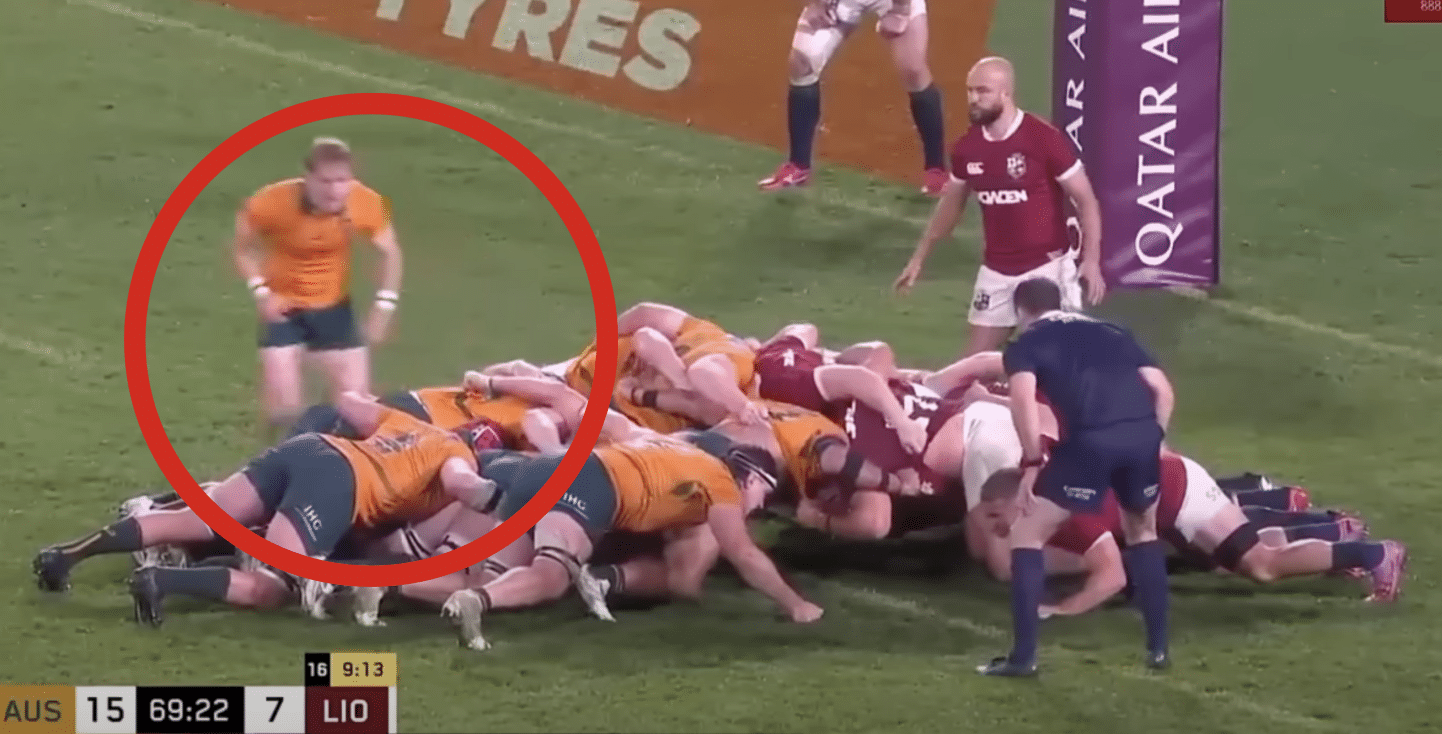A key law in rugby union is being flagrantly ignored – and fans have had enough. The law in question? Scrum feeds. Or more accurately, the complete lack of fair ones.
Despite aiming for a historic 3-0 Lions series sweep – something not seen since the 1927 Argentina tour – Andy Farrell’s men couldn’t handle Australia’s power game. The hosts took full advantage of the conditions, sealing a deserved 22-12 win in torrential rain.
RUCK’s Lions content is powered by ISUZU.
The result also brought an end to the Lions’ perfect record on Australian soil. Hopes of matching the legendary unbeaten 1974 tour were washed away.
But while the defeat stung, it’s the state of the scrum that’s sparked widespread backlash online.
One fan asked: “What’s with the bloody second row feeds in the scrum now?”
Another fumed: “What’s the point of a hooker anymore. Hookers don’t hook.”
A third didn’t hold back: “These scrum feeds are getting out of control. What is the Georgian ref watching,”
And a former front-rower chimed in: “As a former front rower, the scrum is a farce at the minute due to the stupid feeds.”
Another fan wrote: “The scrum is becoming pointless. Neither the Lions or Wallabies have fed the ball straight in THREE tests,”
The message is clear – fans want action. Because right now, the set-piece is turning into a set-joke.
EDITORS PICKS:
“Goodbye Caterpillar ruck” – Three more rugby law changes for 2025
me from a place of respect for the game and a desire to see it continue to thrive.
World Rugby has made plenty of changes in recent years, and these ideas could be next.
1. Fewer Substitutions
Rugby has changed significantly over the years, and one of the biggest shifts is how the bench is used. These days, teams often bring on almost an entirely new forward pack late in the game. Big, fresh players crash into tired defenders, making the final 20 minutes less about skill and endurance, and more about brute force. Many fans and former players feel this has turned rugby into a collision sport rather than a contest of stamina and intelligence.
Reducing the number of substitutions would encourage players to pace themselves. Space would open up in the second half, creating more opportunities for creative play rather than endless phases of pick-and-go. It would reward fitness, smart decision-making, and those capable of performing for the full 80 minutes.
Fewer substitutions wouldn’t just make the game more exciting—it would make it fairer, safer, and more in line with the spirit of what rugby has always been about.
With the rise of 6–2 and even 7–1 bench splits, pioneered by Rassie Erasmus, the trend seems to be heading in the opposite direction. That’s all the more reason to act now.
Like this:
Like Loading…


